Paraneoplastic Syndrome Renal Cell Carcinoma
Paraneoplastic syndrome renal cell carcinoma. Of those with Hypercalcemia and RCC approximately 75 have high-stage lesions and 50 harbor. Subsequent evaluation for a paraneoplastic etiology revealed a renal mass which was resected and identified as clear cell renal carcinoma. A variety of signs and symptoms have been reported as paraneoplastic features of renal cancer Table 1.
Following removal of tumour all symptoms and signs regressed. Approximately 1040 of patients with renal cancer will develop a paraneoplastic syndrome during the course of their disease 89. Renal cell carcinoma is a unique and challenging tumor because of the frequent occurrence of paraneoplastic syndromes including hypercalcemia erythrocytosis and nonmetastatic hepatic dysfunction.
Renal cell carcinoma is one of the cancers most strongly associated with paraneoplastic syndromes most often due to ectopic hormone production by the tumour. Paraneoplastic syndromes associated with renal cell carcinoma. Paraneoplastic weakness is a rare manifestation of renal cell carcinoma and may present with variable electrophysiological features.
Renal cell carcinoma RCC is most commonly. We herein report the case of a patient who initially presented with gait disturbance due to polyneu-ropathy which was defined as chronic inflammatory demye-. Paraneoplastic syndromes PNS in renal cell carcinoma RCC are important to be recognized by the treating physician because they may lead to diagnosis of underlying malignant disease.
Among neoplastic diseases renal cell carcinoma is recognized for its unpredictable various paraneoplastic syndromes23The biologic basis for these unusual features of renal cell carcinoma might be the mediation of effects by cytokines such as interleukin-6 IL-6 or growth factors produced by the tumour and immune mechanisms45. On the other hand PNS may dominate the clinical picture and can hide the true disorder like a. Autosomal dominant polycystic kidney disease ADPKD is a multisystem hereditary disease characterized by the formation of cysts in the ductal organs Although renal cell carcinoma RCC is known to be a complication of ADPKD renal pelvis malignancy in ADPKD is rare with few cases being investigated and reported 23Polymyositis PM is a rare autoimmune.
Some rare variants are also mentioned. 2 The most common neoplasms associated with paraneoplastic glomerular disease are carcinomas of the lung and. The patients clinical condition improved after resection of the mass.
We present a case of a patient with progressive weakness sensory changes and urinary retention with electrophysiological features suggestive of a complex peripheral nervous system syndrome. Neuromuscular disorders such as paraneoplastic syndrome related to RCC are extremely rare 1.
These are present in up to 40 of patients with renal cell carcinoma during the course of the disease.
Renal cell carcinoma is a unique and challenging tumor because of the frequent occurrence of paraneoplastic syndromes including hypercalcemia erythrocytosis and nonmetastatic hepatic dysfunction. Autosomal dominant polycystic kidney disease ADPKD is a multisystem hereditary disease characterized by the formation of cysts in the ductal organs Although renal cell carcinoma RCC is known to be a complication of ADPKD renal pelvis malignancy in ADPKD is rare with few cases being investigated and reported 23Polymyositis PM is a rare autoimmune. Paraneoplastic syndrome develops in approximately 10-40 of renal cell carcinoma RCC patients. Of those with Hypercalcemia and RCC approximately 75 have high-stage lesions and 50 harbor. A variety of signs and symptoms have been reported as paraneoplastic features of renal cancer Table 1. 1 Paraneoplastic glomerular disease was first reported in 1966 and the incidence rate is approximately 109. Paraneoplastic syndromes PNS in renal cell carcinoma RCC are important to be recognized by the treating physician because they may lead to diagnosis of underlying malignant disease. Paraneoplastic syndromes associated with renal cell carcinoma. Paraneoplastic vasculitis PV in metastatic renal cell carcinoma mRCC patients has been poorly investigated.
Paraneoplastic syndromes associated with renal cell carcinoma. Paraneoplastic weakness is a rare manifestation of renal cell carcinoma and may present with variable electrophysiological features. 1 Paraneoplastic glomerular disease was first reported in 1966 and the incidence rate is approximately 109. Paraneoplastic syndromes PNS have been defined as a constellation of symptoms and signs seen in patients with malignancy which cannot be ascribed to the local or distant spread of the tumor. The treatment for these complications of RCC is generally limited beyond treating the underlying cancer. We present a case of a patient with progressive weakness sensory changes and urinary retention with electrophysiological features suggestive of a complex peripheral nervous system syndrome. Paraneoplastic syndrome develops in approximately 10-40 of renal cell carcinoma RCC patients.



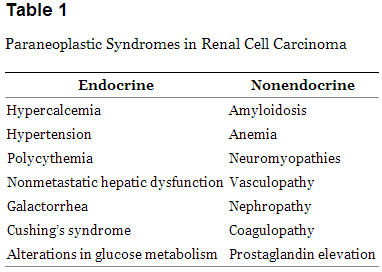




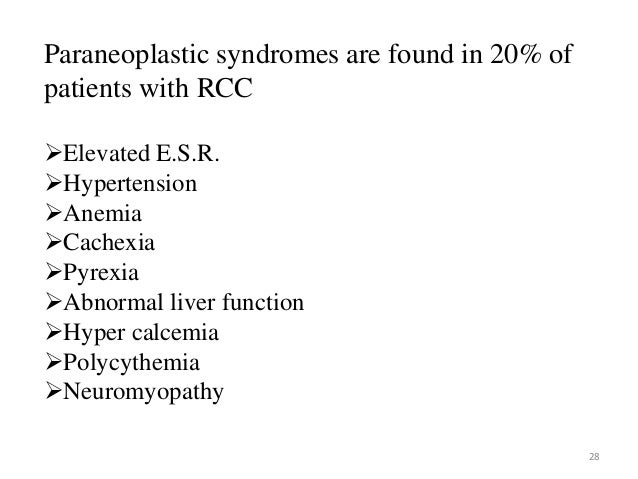


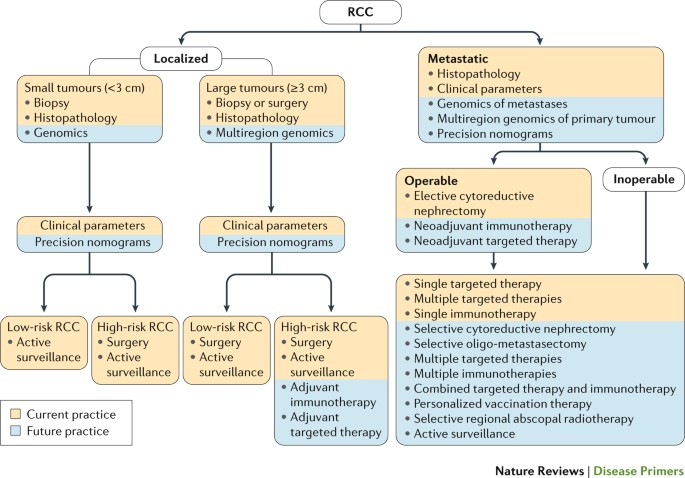
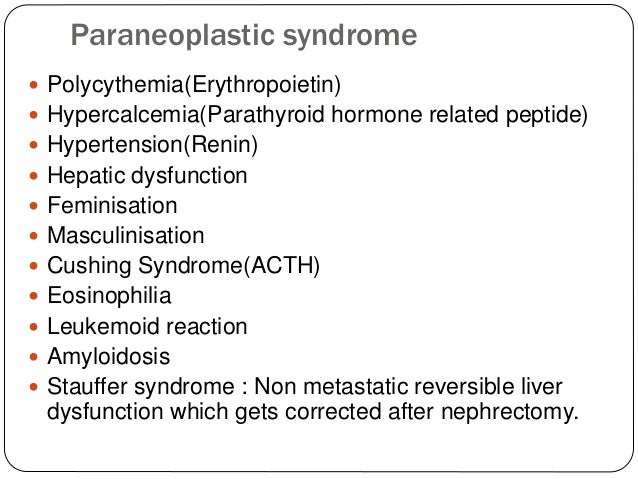
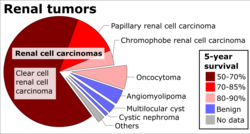
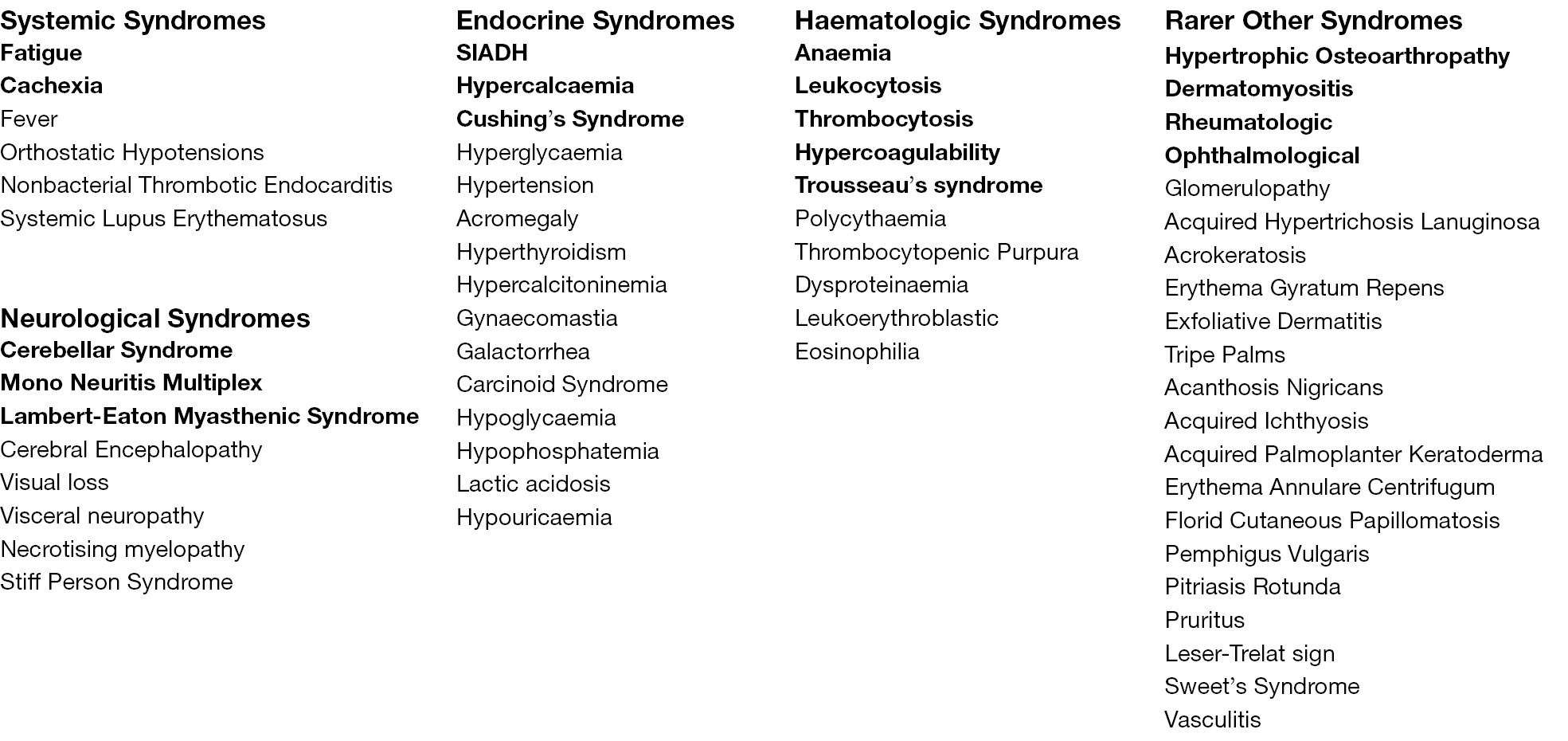





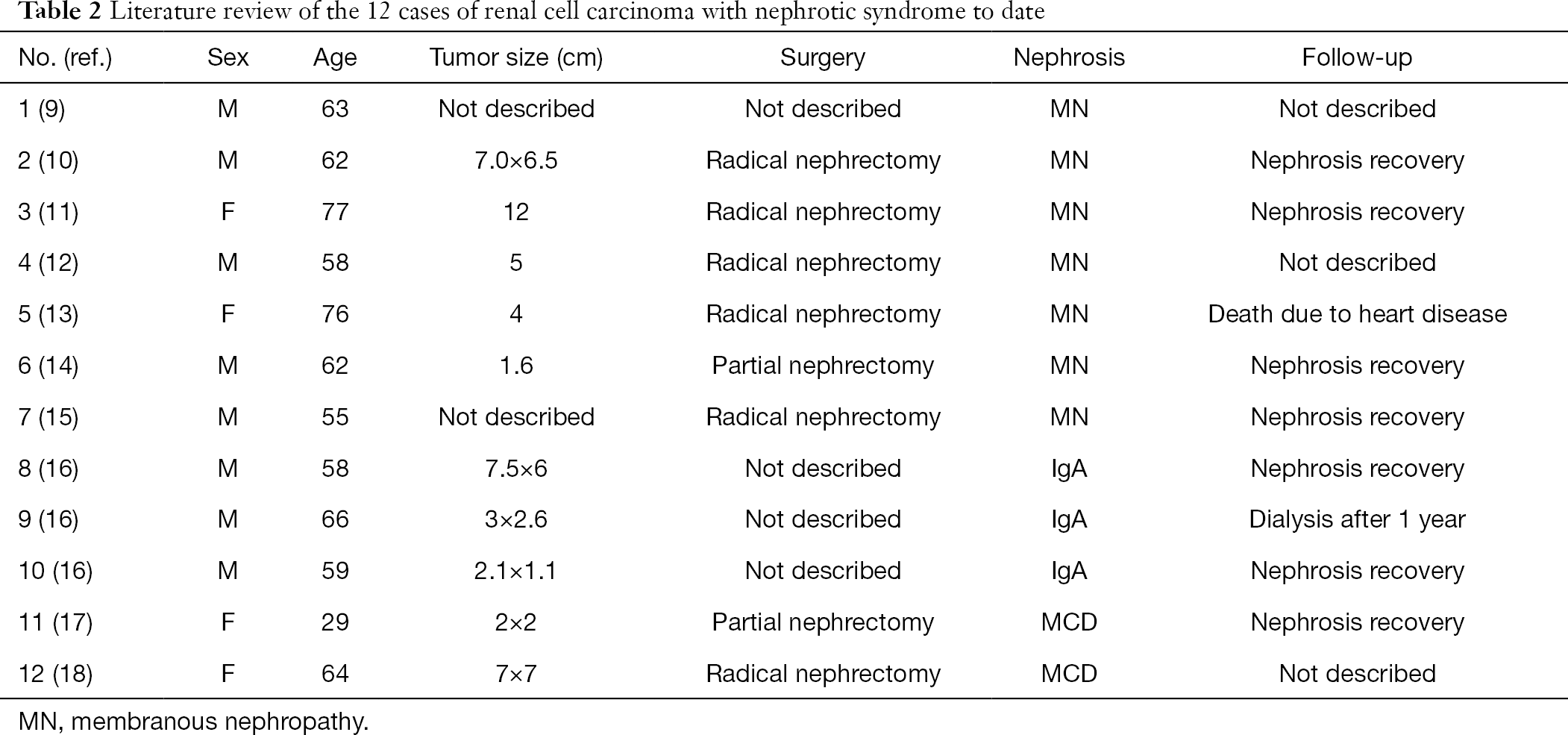

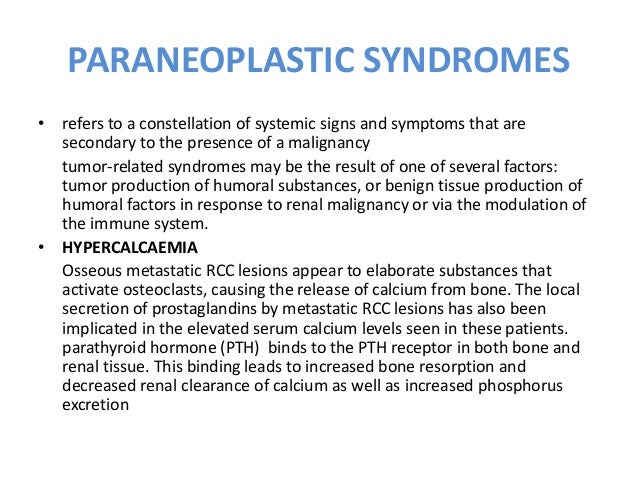

/renal-cell-carcinoma-stage-chart-5b352575c9e77c003791ae76.jpg)





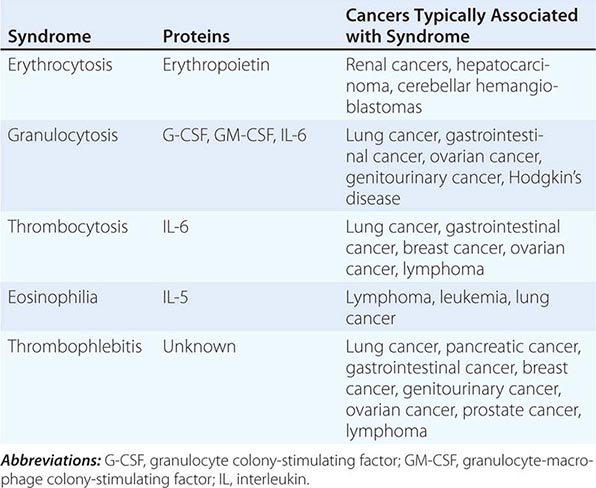











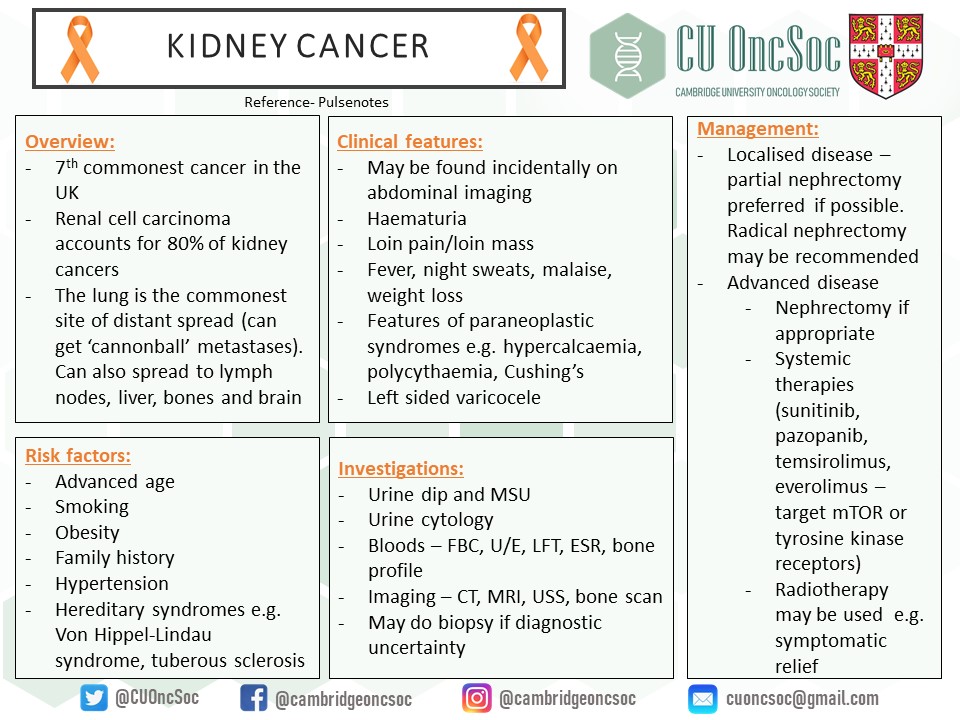
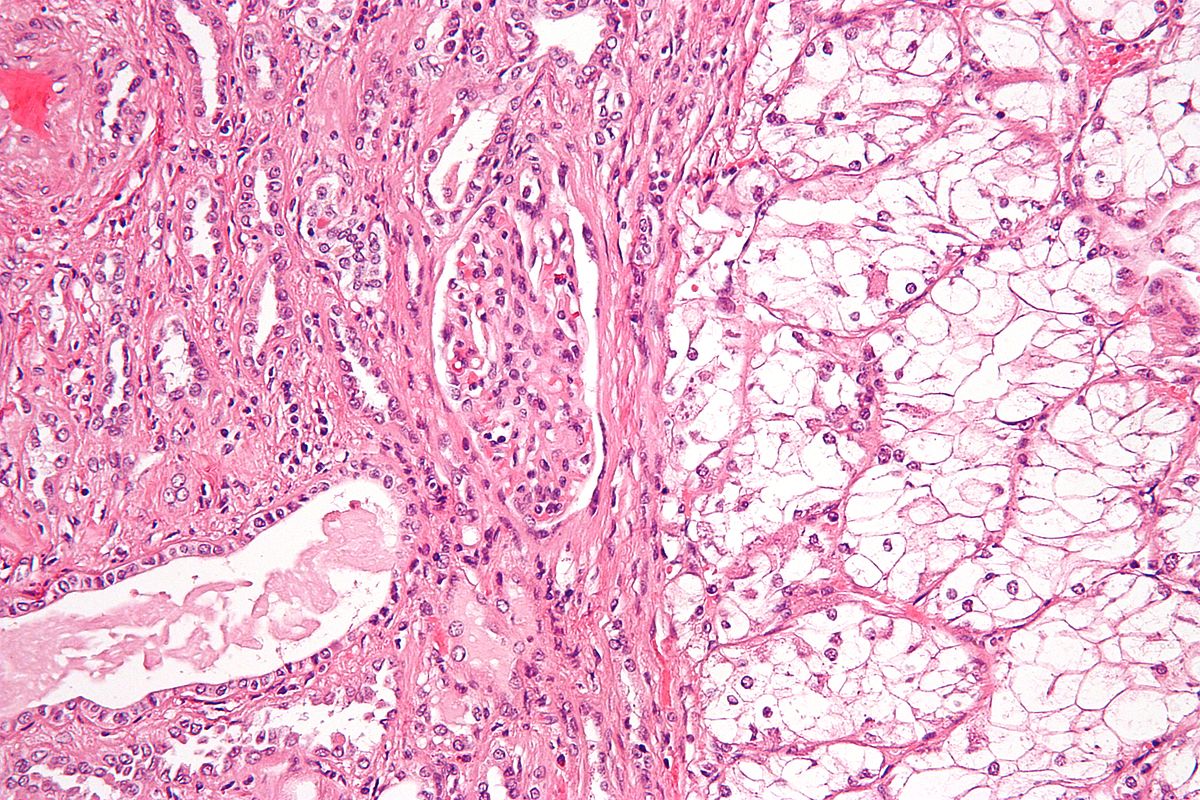

Post a Comment for "Paraneoplastic Syndrome Renal Cell Carcinoma"